Tatarstan symphony orchestra conquer the capital
Tatar State Symphony Orchestra gets a subscription to Moscow Philharmonic — the first among the regional orchestras
An unprecedented case: the regional orchestra receives its own subscription to the metropolitan philharmonic. The subscription No. 17 includes three concerts of the Tatarstan orchestra under artistic direction of Alexander Sladkovsky. The first concert of the cycle held last Friday was almost sold out. Read the details in the material of Realnoe Vremya.
People were listening even in the foyer
The Tchaikovsky Concert Hall on Mayakovsky square in Moscow is perhaps one of the most iconic venues in the capital of the country. It is very difficult to get an opportunity to play a concert here, but it is almost impossible to get a subscription, especially for a regional orchestra. However, the Tatar State Symphony Orchestra does have such a ticket this season, that means that the capital's music lovers go to listen to Alexander Sladkovsky and his orchestra.
Last Friday evening in the capital, which still preserves the New Year's decoration, the main musical event was the opening of the subscription No. 17, which includes three concerts. Huge, built like an amphitheatre Tchaikovsky Hall was almost full – the Tatarstan orchestra, not the first season giving successful concerts in Moscow, has a good reputation here. The name of the artistic director of the team and its chief conductor, who ''created a miracle'' in the capital of Tatarstan, is on everyone's lips.
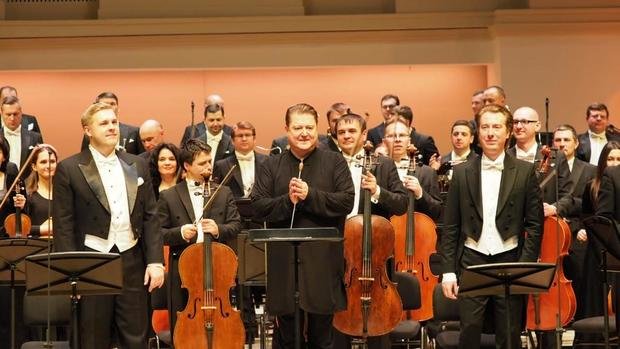
The quality of the orchestra can also be judged by the artistic tasks it sets for itself, in this sense, the reputation of the Tatarstan orchestra is impeccable: the repertoire policy is carefully thought out, and the works are chosen of immense complexity. The opening of the subscription No. 17 was no exception: the programme included the violin concerto with the Béla Bartók orchestra and Gustav Mahler's The Song of the Earth. And this, undoubtedly, attracted the attention of the sophisticated Moscow public.
Looking ahead, we will say that the concert of the Tatarstan symphonic orchestra was listened to by not only those spectators that were in the hall. In the lower foyer, it was broadcasted on a large screen, in front of it there were chairs, there was no free space — they were all occupied by employees of the concert hall. And they are a kind of litmus paper – they have heard so many groups working there.
To the light
The first part of the concert already became a sensation. The programme included the second concerto for violin and orchestra by Béla Bartók, technically and emotionally challenging work. The soloist was French violinist Renaud Capuçon, the third best violinist in the world rating.
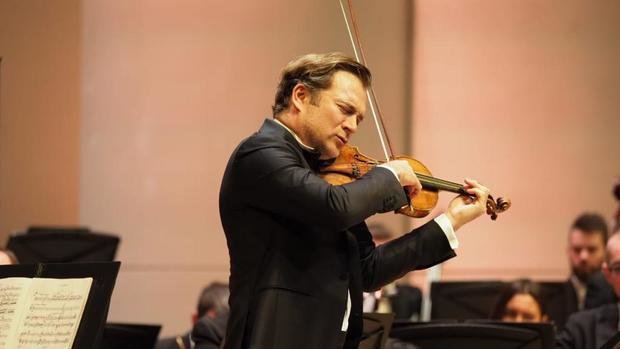
Capuçon, a charming, smiling Frenchman, as if charged with positive, solar energy, plays the violin by Guarneri, bought for the musician by the Swiss Bank. Previously, the instrument belonged to Isaac Stern. Capuçon studied at the Higher National Conservatory for Music and Dance in Paris, then learned from Stern and Thomas Brandis.
Capuçon is the winner of many prestigious awards, he performs with the top orchestras and conductors, participates in well-known international festivals. He is a Chevalier of the French National Order of Merit.
The three-part concert of Bartók, which the author dedicated to his friend — Hungarian violinist Zoltán Székely, created in the late thirties of the last century, became a classic. The world lived in anticipation of the great upheaval, the war that was already on the threshold, and this anxiety, this uncertainty is in the music of Bartók, the composer could not help but catch it. As you know, Alexander Sladkovsky, like no other, can convey subtexts, pull out of the subconscious something that is hidden very deeply…
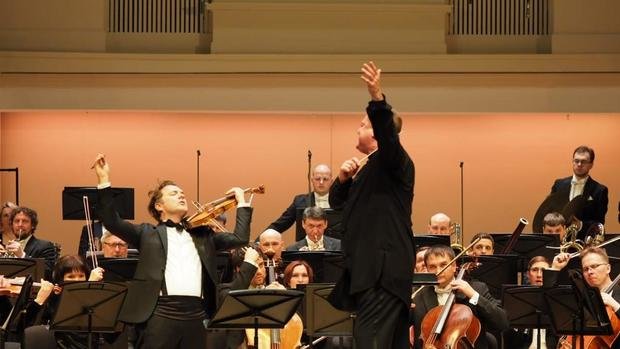
We can say that the concert was a kind of duo — the violinist and conductor, understanding and feeling each other from a half-glance. The orchestra and the soloist led us from despair, from fear of the inevitable — to light and hope, to good and peace, to the rational that sooner or later will prevail. In the finale of Bartók's music, the audience could hardly restrain emotions and burst into applause. Certainly, Renaud Capuçon had to encore.
The road to eternity
Gustav Mahler is one of Sladkovsky's most revered composers. His poem-cantata for tenor, baritone and orchestra The Song of the Earth, to which the second part of the concert in Moscow was devoted, was already heard two years ago in Kazan, and this was its first performance in the capital of Tatarstan. The more interesting it was to compare the premiere performance and the current one, because for two years the Tatarstan orchestra, of course, has changed, and the maestro himself has become a little different — the soul of the artist is constantly in motion, in development.
The Song of the Earth, this ''symphony in songs'', as defined by Mahler himself, has as a literary basis the poems of Chinese poets of the Tang era. They have been translated into German by Hans Bethge. His book is gently called The Chinese Flute. In principle, if we talk about serial numbers, The Song of the Earth is the composer's ninth symphony, but the author avoided the number for superstitious reasons, because it was the ninth symphonies that became fatal for Beethoven and Bruckner, to whom Mahler worshipped.
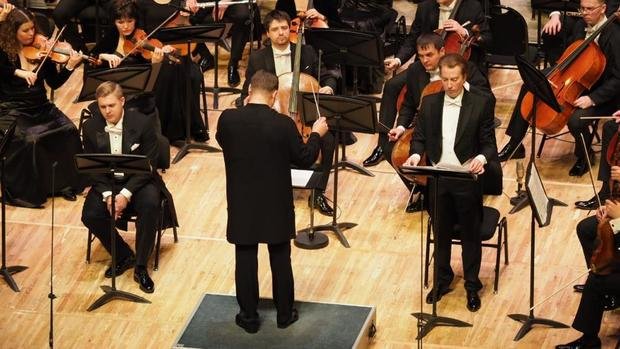
The Song of the Earth is the work of meditation, where the spectrum of emotions passes in front of the listener — from fun and joy to reflection, deep searches, to the concept and acceptance of the inevitability of departure, to peace. In addition to the Tatarstan orchestra, the performance of The Song of the Earth was participated by two soloists — baritone Boris Pinkhasovich and tenor Sergey Radchenko.
What is the concept of ''peace'' in the interpretation of Mahler and Alexander Sladkovsky? This is the finding of harmony, it is found only if the soul makes a long way of self-improvement. The conductor in this case is a guide on this difficult, full of temptations way. The maestro leads the listeners carefully and tenderly, he is wise, he has already achieved this harmony and knows its difficult price.
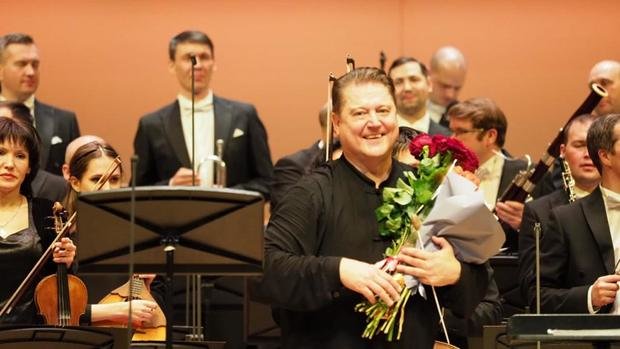
Certainly, in the final of the concert in the Tchaikovsky Hall there was a long ovation, flowers, rave reviews. In principle, the Tatarstan orchestra has no other finals. But the subscription No. 17 is really, along with many successes of the maestro and his orchestra, is a resounding victory. This is, in fact, the winning of the musical Moscow.